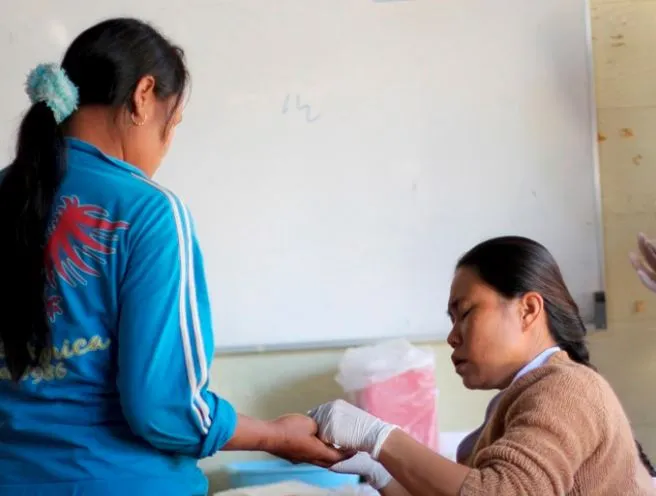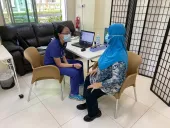
Zeroing in on malaria in the Asia Pacific region
Expert says malaria statistics for Asia must be given importance.
Malaria statistics for Asia are not reliable in terms of absolute numbers because no government agency captures all cases of malaria and its outcomes.
According to Prof Kevin Baird from Oxford University Clinical Research Unit, some patients will delay seeking any treatment at all until they are are in deep trouble.
“Very often, these are the people who have the hardest time getting to healthcare. Sometimes, they wait too long and never make it to a treatment centre. All
of these people just mentioned are not seen or counted by health systems,” he says.
This is what Prof Baird and Singaporean photographer Pearl Gan wants to portray in their “See Malaria in Asia Project” – that one can’t truly know the malaria situation if it isn’t seen. The exhibition will be held in September 2017 at the National Library in Singapore. “It is intended to alert the lay public to the problem of malaria in the region,” Prof Baird says.
Healthcare Asia caught up with Prof Baird as he discusses what their project aims to achieve.
What is the current situation of malaria spread in Asean? Please provide statistics and figures to provide a better picture of the current situation.
Many people treat themselves. They can go to a local seller of antimalarial drugs (which can be obtained over the counter almost anywhere in the region). Others may simply grin-and-bear it and survive because they have some naturally acquired immunity. Still others will seek out care at a private treatment clinic. Finally, some will delay seeking any treatment at all until it becomes very clear they are in deep trouble. Very often, these are the people who have the hardest time getting to healthcare, the most remote and isolated. Sometimes, we don't know how often, they wait too long and never make it to a treatment center. All of these people just mentioned are not seen or counted by health systems. This is the main point of the See Malaria in Asia Project -- we can't truly know the malaria situation if we cannot see it.
How are governments handling malaria cases in Asean countries? What are the issues being encountered and regulatory lapses that must be addressed?
Healthcare delivery systems in most Asian countries are stretched very thin due to limited resources, immense population sizes, and often vast geographic distances and obstacles. Governments struggle to put what is needed at the very far edges of the peripheries of their reach what people need to combat malaria. It is precisely those far edges where the majority of people suffering malaria live. In any of those systems lapses may occur due to economic shortfalls, logistical problems, or, most often, the remaining distance between the periphery and where people with malaria live. Getting to where services for malaria are offered may involve anything between a casual stroll across the street to a grueling and expensive journey of several days. When more like the latter, poor outcomes occur beyond the notice of the people offering services. Almost all governments push as far as their resources and technology allows them to prevent and treat malaria.
How can healthcare firms help in addressing malaria in Asean countries? What forms of assistance are currently in place and how should these be improved?
This is too complicated of a question and I am not qualified to answer it. In general healthcare firms are not directly engaged in the malaria problem because their reach is very much more limited than the government's. The vast majority of people suffering malaria are too poor to support an economically viable private care venture.
Tell us about the exhibit you will be holding in September, what is your goal?
The exhibit is intended to alert the lay public to the problem of malaria in the Asia-Pacific region in both a technical and social sense. We want the public to be aware of the suffering caused by malaria despite probably never seeing any evidence of it in their daily lives. They may thus understand that malaria very seriously impacts the most invisible and voiceless people in our region. This awareness kindles more action and greater attention on the malaria problem by individual citizens, civil society, academia, and governments.
View the "See Malaria in Asia" project here.













 Advertise
Advertise













